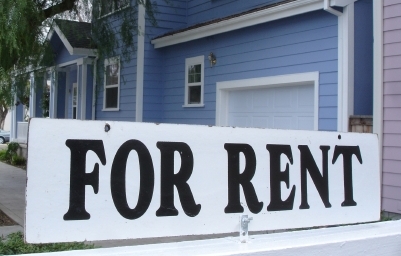
- Eviction Reasons
- Eviction Process
- Filing an Eviction
- Tenant Defense to Evictions
- Is a Landlord Tenant Attorney Required?
A landlord has the right to tenant housing eviction for non-payment of rent or if the tenant violates any other legal clause in the lease as long as the landlord does so according to the laws on eviction. Each state has established the procedures a landlord must follow to evict a tenant. If a landlord doesn't follow the law exactly, his eviction case will be dismissed and he'll have to start the process over again.
Eviction Reasons
A landlord must have a legitimate reason for evicting a tenant. A landlord can legally evict a tenant because:
- The lease term has ended;
- The tenant is behind on her rent; or
- The tenant has violated a legal clause in the
lease.
If the basis for the eviction is non-payment of rent, most jurisdictions have an expedited process for hearing the case. The primary reason for this is that landlords cannot afford a long drawn out process during which the tenant is allowed to reside in the property without paying rent. Be aware that once a landlord files an eviction complaint based upon non-payment of rent, if he accepts a partial payment from the tenant, most courts will dismiss the case.
Aside from non-payment of rent, the most common lease violations are:
- Having unauthorized pets;
- Engaging in illegal or unsafe activity on the premises; and
- Damaging the property.
If the reason for the eviction is other than for non-payment of rent, the process may take a bit longer. Nevertheless, in most states, the eviction process moves much more quickly than other types of legal actions.
Once a landlord files an eviction action, the complaint must be served on the tenant. It could be a 3 day eviction notice, or a 30 day eviction notice. In most jurisdictions, the sheriff or marshal is responsible for serving legal documents. Once the tenant has been served, he will have a very short amount of time during which to file an answer and serve it on the landlord.
The Eviction Process
To start the eviction process, the landlord must first formally serve the tenant with an eviction notice which specifically sets forth the reason(s) for the eviction. Typically, the eviction notice will include a "cure" date by which the tenant must rectify or correct the lease violation. If the eviction is based on non-payment of rent, the eviction notice must also state the amount of rent which is due. State law sets forth all information which must be included in an eviction notice as well as the proper method for serving the notice on the tenant.
If the tenant fails to cure the lease violation by the specified date, the landlord may file an eviction case. Depending on the state where the rental property is located, an eviction action may be called an unlawful detainer action, a dispossessory action, or an action in ejectment.
Filing an Eviction
It's important that the case be filed in the right court. If a landlord files the eviction case in the wrong court, it will either be dismissed or transferred to the correct court. Some states have landlord-tenant courts which handle landlord-tenant cases exclusively. The magistrate court or small claims court in other states have jurisdiction over landlord-tenant cases.
Tenant Defense to Evictions
The tenant may assert defenses and counterclaims in his answer. Typical defenses and counterclaims include:
- The violation has been cured;
- The landlord broke the lease first by failing to maintain the premises in a habitable condition;
- The landlord is attempting to enforce an illegal lease provision; and
- The landlord failed to follow the proper notice procedures required by law.
If the tenant does not file an answer and does not appear at the hearing, the judge will enter a default judgment in favor of the landlord. If the tenant files an answer and appears at the hearing, the judge will allow each party to testify, present evidence, and call witnesses. At the end of the hearing, the judge will enter a ruling.
If the judge rules in favor of the tenant, the tenant may continue to live in the premises. If the judge rules in favor of the landlord, he may not immediately change the locks. He must take a copy of the eviction order, also known as a writ of possession, to the sheriff or marshal who will post a notice on the property which tells the tenant that she must vacate the premises by a specified date. If the tenant fails to vacate the premises, the sheriff or marshal will remove the tenant and her belongings from the property.
Can an Attorney Help?
In some states, if a landlord is a corporate entity, an attorney is required to represent the landlord in an eviction proceeding. Even if an landlord is an individual, it's probably best to develop a relationship with an experienced landlord-tenant attorney who can draft rental agreements, eviction notices and other correspondence, and give general advice as issues with the property and tenants arise.
Talk to a Lawyer
Need a lawyer? Start here.
How it Works
- Briefly tell us about your case
- Provide your contact information
- Choose attorneys to contact you
Talk to a Real Estate attorney.
How It Works
- Briefly tell us about your case
- Provide your contact information
- Choose attorneys to contact you